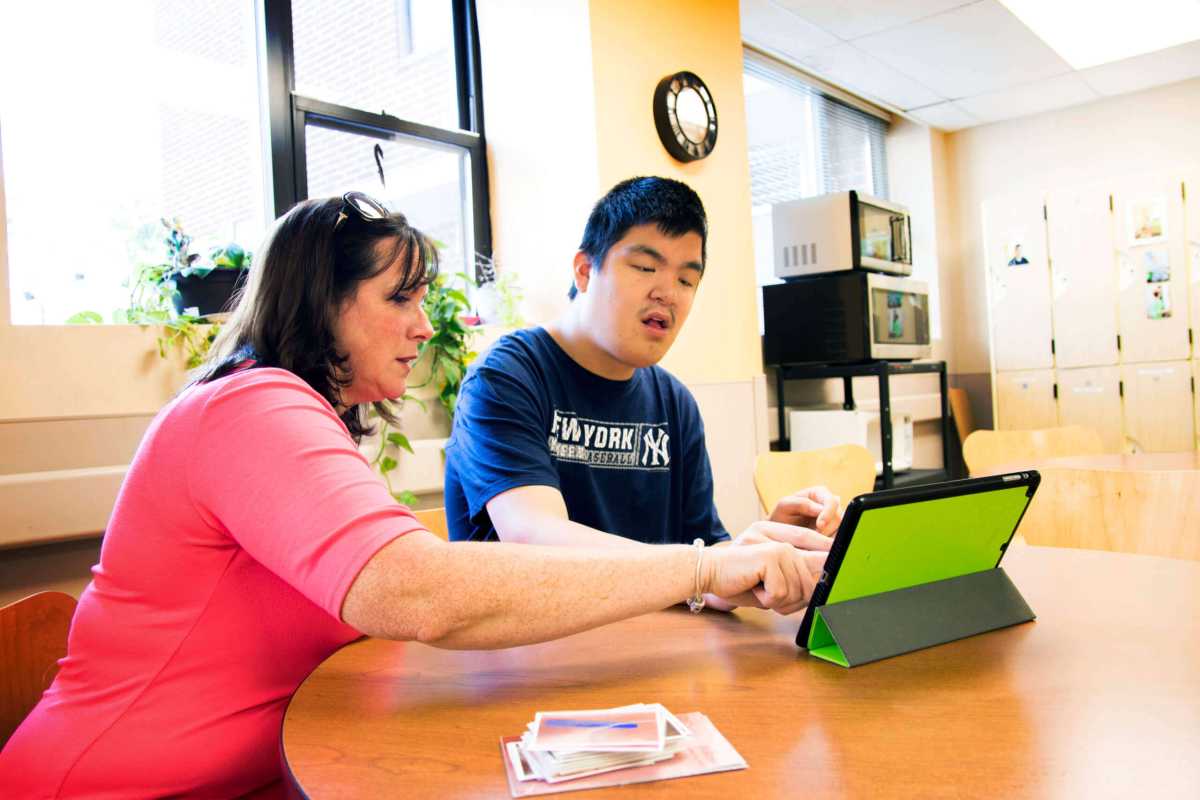Proposed state-wide budget cuts to group homes for people with developmental disabilities will leave residential service providers hurting, advocates and caregivers say.
The cuts, proposed by the state’s Office for People With Developmental Disabilities, will amount to $200 million annually, and come as operating costs rise in the wake of the coronavirus pandemic, according to New York Disability Advocates, who feared another round of lost funding on top of decades of austerity cuts.
“We urge the [Office for People With Developmental Disabilities] to work with providers to identify solutions that will lead to a more efficient system rather than extracting a pound of flesh from the critical non-profit providers when the state has already seen their budgeted expenses significantly decrease due to the pandemic,” Mike Alvaro, treasurer of the advocacy group, said in a statement. “Advancing these cuts undermines, rather than supports a thoughtful transition to a more efficient system for people with developmental disabilities and their families across New York.”
The proposed cuts would reduce reimbursements to non-profit providers from the state by 50 percent for so-called “retainer days” — days when group home residents are not in the homes due to a hospitalization, or a visit with family. They would also nix a previous amendment which justified group homes accruing the same expenses despite having a temporarily empty bed, be it due to the death of a resident or other circumstances.
The vacancy factor was formerly at five percent, which took into account the expenses that do not disappear when a resident passes away and the home looks to fill their place, such as costs of upkeep and utility bills. The proposed cuts do away with the vacancy factor completely, according to one group home leader.
“Say you have a home where 10 people with developmental disabilities live and one of them passes away,” said Joe Riley, CEO of the Guild for Exceptional Children, which operates residences in Bay Ridge and Dyker Heights. “It’s not like you can say ‘alright now I have 10 percent less expenses.’ You still have the utilities, you still have to pay the staffing for that house, all the overhead remains the same.”
And the reimbursements for “retainer days,” Riley said, allow group homes to receive the same amount of funding per person if a resident was hospitalized — a common occurrence during the coronavirus pandemic.
Under the proposed budget, the state would only pay for half of the days of a resident’s hospitalization.
These cuts unfairly target privately run and residential services, according to Riley, as neither state-run or day-only facilities will face any serious damage. The cuts also appear to target facilities with a more senior population, who are naturally inclined to have more deaths and, therefore, a higher vacancy rate.
“I think it’s discriminatory,” Riley said.
In a statement, the state agency defended its approach to finding savings in its budget.
“There are no changes to the services provided as a result of this targeted approach, which implements savings goals included in the enacted budget,” said OPWDD spokeswoman Jennifer O’Sullivan.
Care providers see it differently.
“State-operated programs have annually received at least three percent increases, are slated for a five percent increase this year, and are not subject to any of these cuts,” said Seth Stein, the Executive Director of the Alliance of Long Island Agencies. “The system needs equity.”
This story is part of an ongoing series about group homes on the front lines of the COVID-19 crisis, and the pandemic’s impact on those with developmental disabilities.























